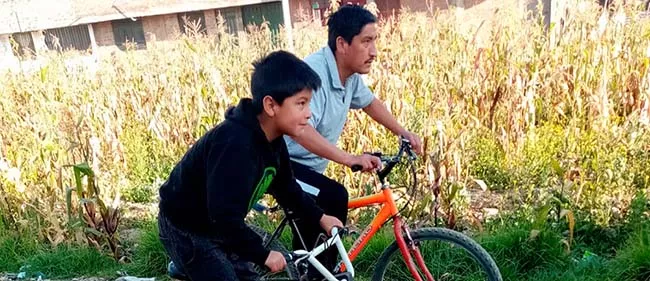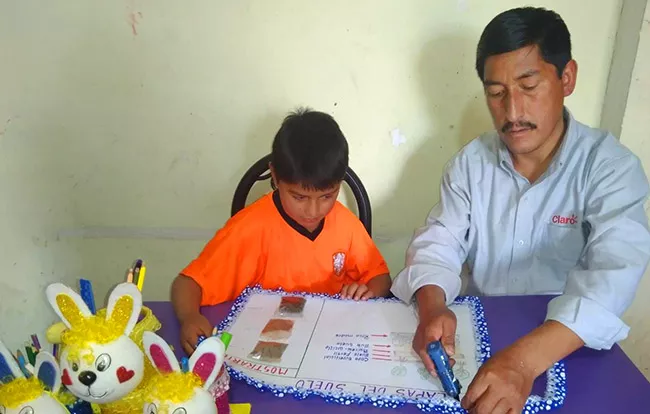In Peru, fathers are taking on the role of affectionate caregivers
Since COVID lockdown measures began to increase pressure on families and parents around the world particularly with respect to “care work” that traditionally falls on women, SOS Children’s Villages Peru has offered workshops to strengthen the parenting capacities of fathers.
The goal of “Active and Conscious Parenting” training is to break gender bias and cultivate positive masculinity. Specifically, the trainings promote a more affectionate and balanced fatherhood, as well as gender equality in the home. In turn, this helps to prevent child abuse and gender-based domestic violence.
By September 2021, a total of 941 men in Peru had strengthened their capacities to take on a more caring parental role, including Luis...
Luis is 46 years old, married, with two young children. After joining the "Active and Conscious Parenting" training offered by SOS Peru in Huancayo, he completely changed the way he supports his family and participates in daily household activities.
In this interview, Luis shares his reflections on the training and how his family life has improved.

How has your family life changed since the training?
Before the training, I was not very involved in the domestic activities of the house. Now I’m more involved, I clean the house, help with the laundry. Also, I help my children in their homework, and I share more quality time with them.
After the training, I feel more aware of my role as a father and of my responsibilities with “care work” – which means that I share the care of my children and household chores with my wife.

I think that all of us who have taken the workshops have learned about the true role of men within the home because sometimes we think that we must only go to work, earn a living, and leave the household to women. But that’s not how things should be.
Were your parents traditional in how they raised children?
I must confess that my parents followed traditional roles – my mother was in charge of us, and of the home. I had a good relationship with my father because he was always the one who spoiled the boys of the family, and I think that’s why he gave us fewer tasks, but my sisters did have much more housework to do.
With my own children, I try to ensure that each one has domestic chores besides their school homework and that they share duties. I try to raise them in a different way than my father educated me – because I think both men and women should have the same responsibilities at home. Children, both boys and girls, also should have equal responsibilities, according to their age.
Personally, I believe that being a more “conscious” father is setting a good example for my children. Because when they are adults, I want them also to assume roles in equal conditions within their own families.
How has co-responsibility of care affected your family relationships?
For my wife and myself, not only are we are better parents, but also better partners. I see that sharing care work contributes to family unity and harmony, especially during times of pandemic when care overload is made worse by the closure of schools.
The truth is that sharing responsibilities at home makes us feel better, more empowered, and being stronger I feel that I also strengthen my family. I'm very happy.

Actually, these positive results have encouraged me to invite other parents from the educational institution where I work to try to improve their relationship with their children. And not only them, we keep inviting more and more people, starting with our friends and family.
What did you like most about the workshops?
What I liked most about the workshops was the topic “viewing pregnancy from male perspective”. The knowledge that bringing a new life into the world must be planned and the responsibility of both parents begins from the moment of the conception, is very important. We must assume our responsibility throughout the pregnancy, the birth and also be active parents after the child is born.
Are there men who don’t agree with your care work at home?
I know that some people still believe that men should only work, but I think they are wrong because raising and caring for children is a task and responsibility of both parties.
Our societies need a new model of father, a type of father who is involved in household chores and in the loving care of children. Showing that it is possible to share the tasks and change the roles so that we have more equal families and societies.

The training is helping us to improve our lives, our way of acting, the responsibilities that we must assume at home, at work, as parents, and in society. Now I have more peace of mind, I feel better at home doing things, sharing with my partner and my children. I feel that they are being formed within that example.
